Vietnam: How was the primary school experiential learning activity in the General Education Curriculum 2018 implemented and carried out?
To implement the General Education Program issued under Circular 32/2018/TT-BGDDT, the Ministry of Education and Training of Vietnam issued Official Dispatch 3535/BGDDT-GDTH in 2019 guiding the implementation of the Primary School Experiential Activities Program in the 2018 General Education Curriculum.
The Primary School Experiential Activities Program in the 2018 General Education Curriculum has been implemented since the 2020-2021 school year.
What are the contents of the Primary School Experiential Activities Program?
Based on subsection 1.1, Section 1 of Official Dispatch 3535/BGDDT-GDTH in 2019, the contents of the Primary School Experiential Activities Program are as follows:
- The Experiential Activities Program specifies three content strands for Grade 1: activities directed towards oneself, activities directed towards society, and activities directed towards nature, and four content strands for Grades 2, 3, 4, and 5: activities directed towards oneself, activities directed towards society, activities directed towards nature, and career-oriented activities.
- The 2018 General Education Curriculum includes local educational content integrated into Experiential Activities, covering basic or current issues on culture, economy, society, environment, career orientation, etc.
How are the types, scales, and locations of Experiential Activities organized?
Based on subsection 1.2, Section 1 of Official Dispatch 3535/BGDDT-GDTH in 2019, the types, scales, and locations of organizing Experiential Activities are regulated as follows:
- Experiential Activities are carried out through four main types of activities: flag-raising activities, class meetings, themed educational activities, club activities, with club activities being optional.
- Experiential Activities are organized at the group, class, grade level, or school-wide scale.
- Experiential Activities are organized both inside and outside the classroom, and inside and outside the school.

How are Primary School Experiential Activities in the 2018 General Education Curriculum implemented? (Image from the Internet)
How is the timing for organizing Experiential Activities in a school year?
Based on subsection 1.3, Section 1 of Official Dispatch 3535/BGDDT-GDTH in 2019, the regulations are as follows:
1.3. Plan for organizing Experiential Activities
- Experiential Activities are regulated for 105 periods/year, including: 35 periods of flag-raising activities (large group, school-wide scale); 35 periods of class meetings (large group, class scale); 35 periods of themed experiential and club activities (class scale, grade-level groups).
The timing for local educational content is included within the total timing for implementing the Experiential Activities Program and integrated into the four main types of activities mentioned in section 1.2.
- Schools with adequate conditions are encouraged to organize out-of-school experiential activities while ensuring educational objectives and student safety. Besides the contents of Experiential Activities regulated in the program, schools can organize additional out-of-school educational activities and optional club activities outside of class hours, according to current regulations of the Ministry of Education and Training (MOET).
- Based on the scale and content of each specific activity, the organization of Experiential Activities, especially on a grade level or school-wide scale, must involve the cooperation and coordination of various educational forces: homeroom teachers, head supervisor, specialty subject teachers (Music, Arts, Physical Education), school management board, political and social organizations, parents, sponsors, etc. Out-of-classroom and out-of-school experiential activities encourage parent participation and require the Parent Representative Board to co-organize and manage along with homeroom teachers and the school.
Thus, Experiential Activities consist of 105 periods per year, including:
- School-wide scale: 35 periods of flag-raising activities (large group);
- Class scale: 35 periods of class meetings (large group);
- Grade-level groups: 35 periods of themed experiential and club activities (class scale).
Additionally, the timing for local educational content is included within the total timing for implementing the Experiential Activities Program.
What are the study materials for Experiential Activities?
Based on subsection 1.4, Section 1 of Official Dispatch 3535/BGDDT-GDTH in 2019, the study materials for Experiential Activities include:
- Experiential Activities study materials evaluated by the National Council and issued by the Minister of Education and Training according to the regulations of Circular 33/2017/TT-BGDDT.
- Local educational content integrated into the Experiential Activities Program is organized and evaluated by the Provincial or Municipal People's Committee according to the MOET's guidelines.
How are primary school students' educational results evaluated in Experiential Activities?
Based on subsection 1.5, Section 1 of Official Dispatch 3535/BGDDT-GDTH in 2019, the evaluation of primary school students' educational results in Experiential Activities is as follows:
- The evaluation is conducted according to the regulations of the General Education Program issued under Circular 32/2018/TT-BGDDT and Circular 30/2014/TT-BGDDT (document currently replaced by Circular 27/2020/TT-BGDDT);
- The homeroom teacher is the primary person responsible for and oversees the evaluation of each student's performance in Experiential Activities.
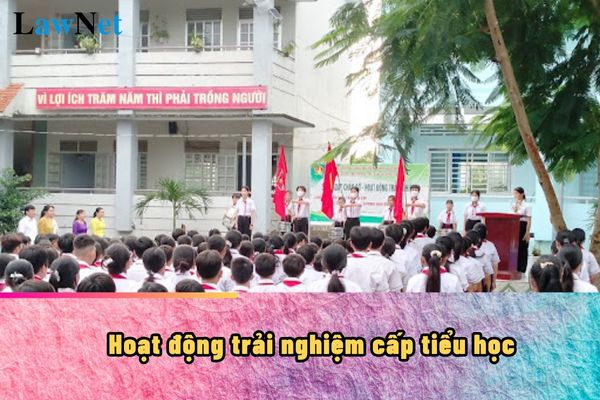
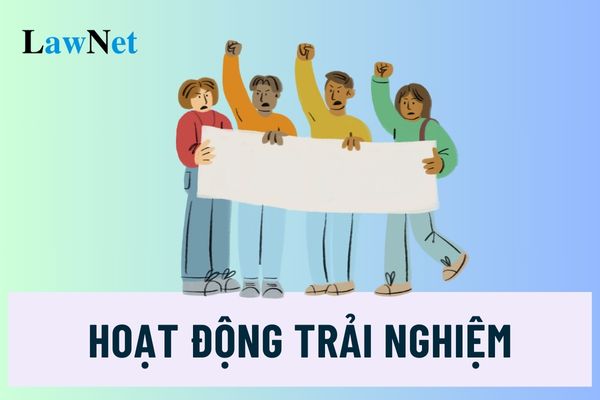

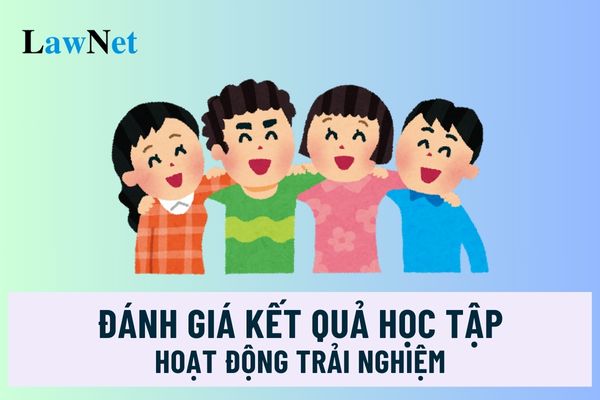
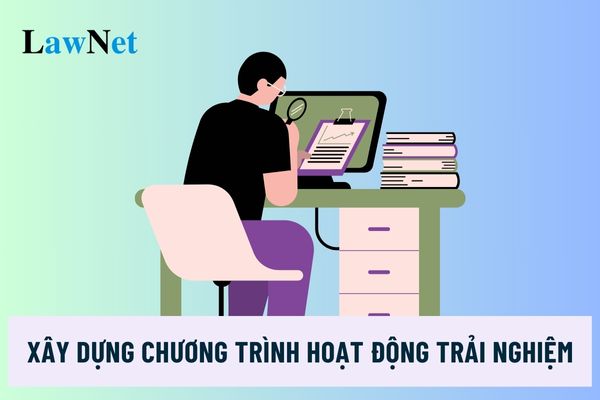
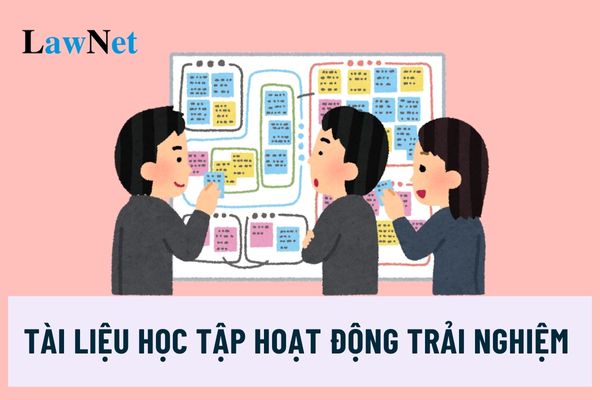



- What are the guidelines for preparing the lesson "Bầu trời mùa thu"? What are the regulations on the selection of texts used in the 4th-grade Vietnamese Language?
- Vietnam: What are the 03 prominent social issues in "Vĩnh Biệt Cửu Trùng Đài" and critical perspectives for Grade 11 Literature? How many academic topics does the 11th-grade Literature curriculum include?
- Vietnam: What are the guidelines for preparing the briefest lesson "Cốm Vòng"? What is the guidance on selecting text corpus used in the 7th-grade Language curriculum?
- What are the sample imaginary paragraphs about the story of the Tortoise and the Hare for 4th-grade students in Vietnam?What are the regulations on the attire of 4th-grade students?
- Vietnam: What are the guidelines for preparing the shortest lesson "Chữ bầu lên nhà thơ"? What are the orientations to the educational content of Literature?
- Vietnam: What are the brief sample essays on retelling the fairy tale of "Tam Cam"? Are 6th-grade students required to be able to write an essay on retelling a legend or fairy tale?
- Vietnam: What are the same paragraphs on retelling the story "The Legend of the Foeniculum Vulgare"? What are the objectives of the assessment of 5th-grade students?
- Vietnam: What is the significance of the birth of the Union of Soviet Socialist Republics under the 11th-grade History curriculum? How many academic topics does the 11th-grade History curriculum include?
- Vietnam: What is the brief sample analysis of the Poem "Nam quốc sơn hà" for 8th-grade students? What are the educational stages in the general education program?
- What are the Top 5 short sample paragraphs expressing feelings and emotions towards a cherished person under the 3rd-grade Vietnamese Language curriculum in Vietnam?

